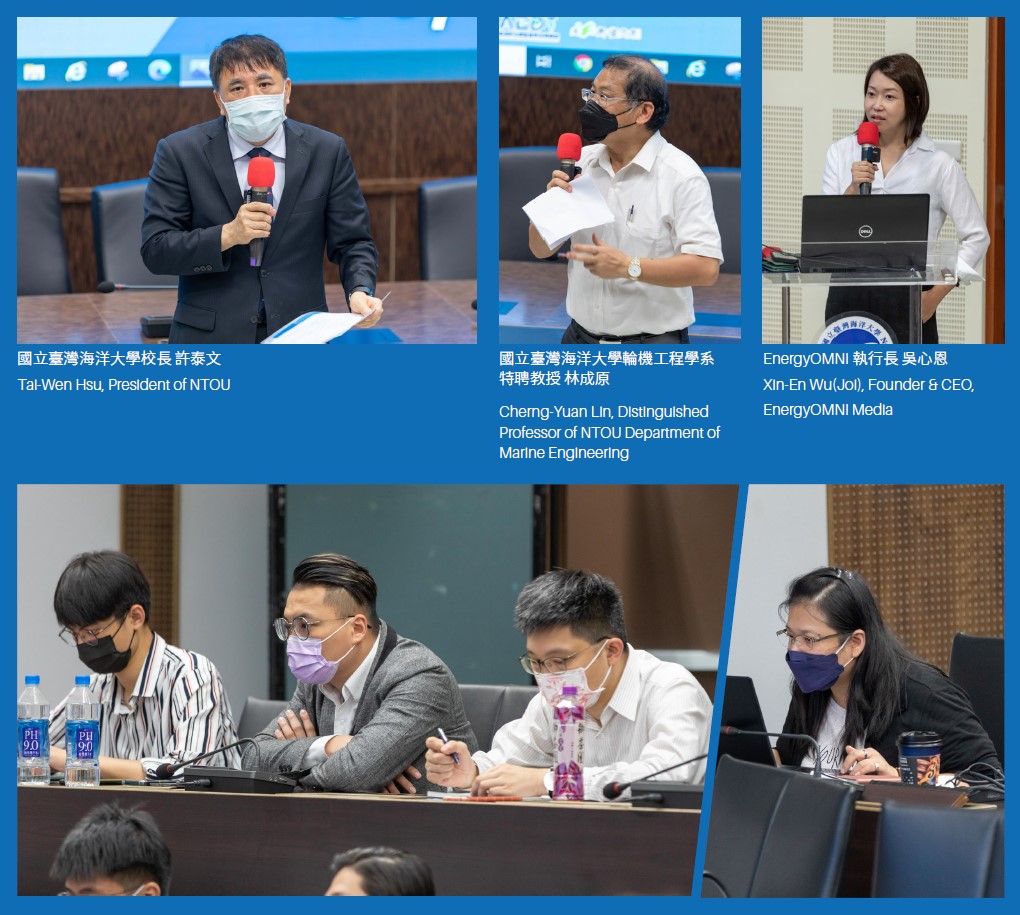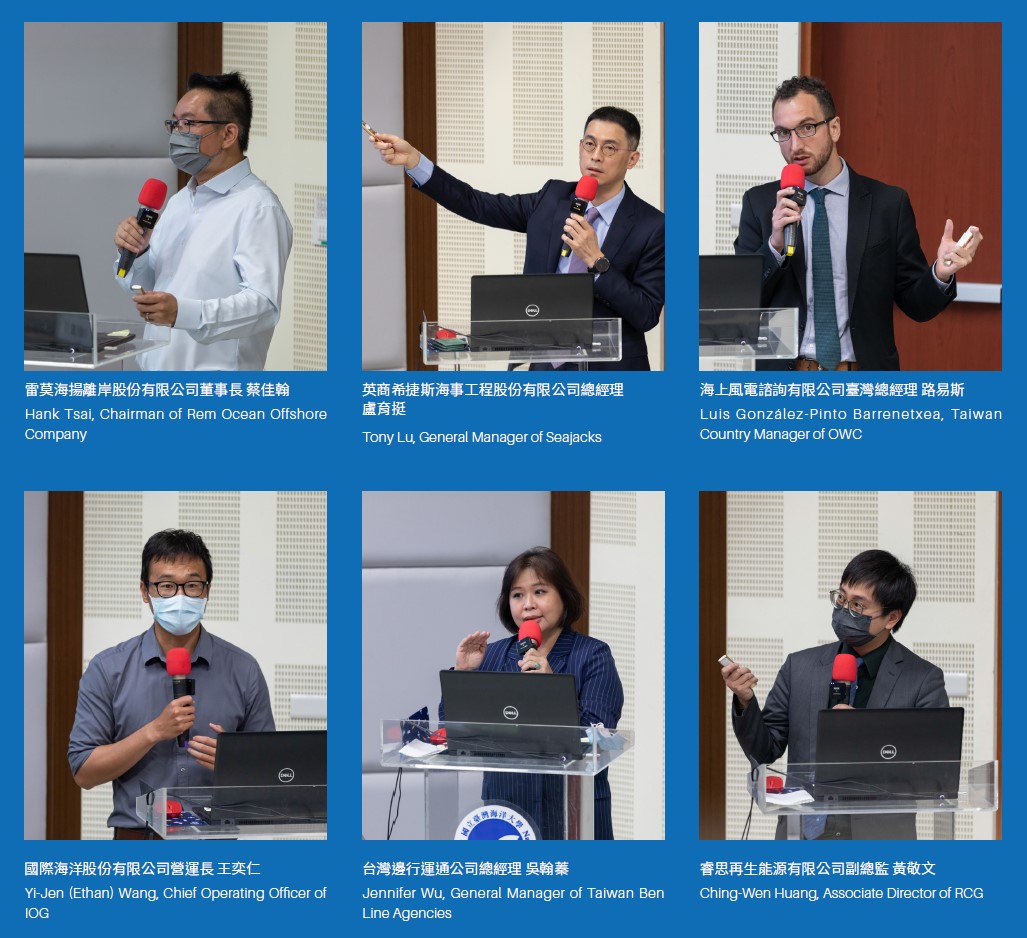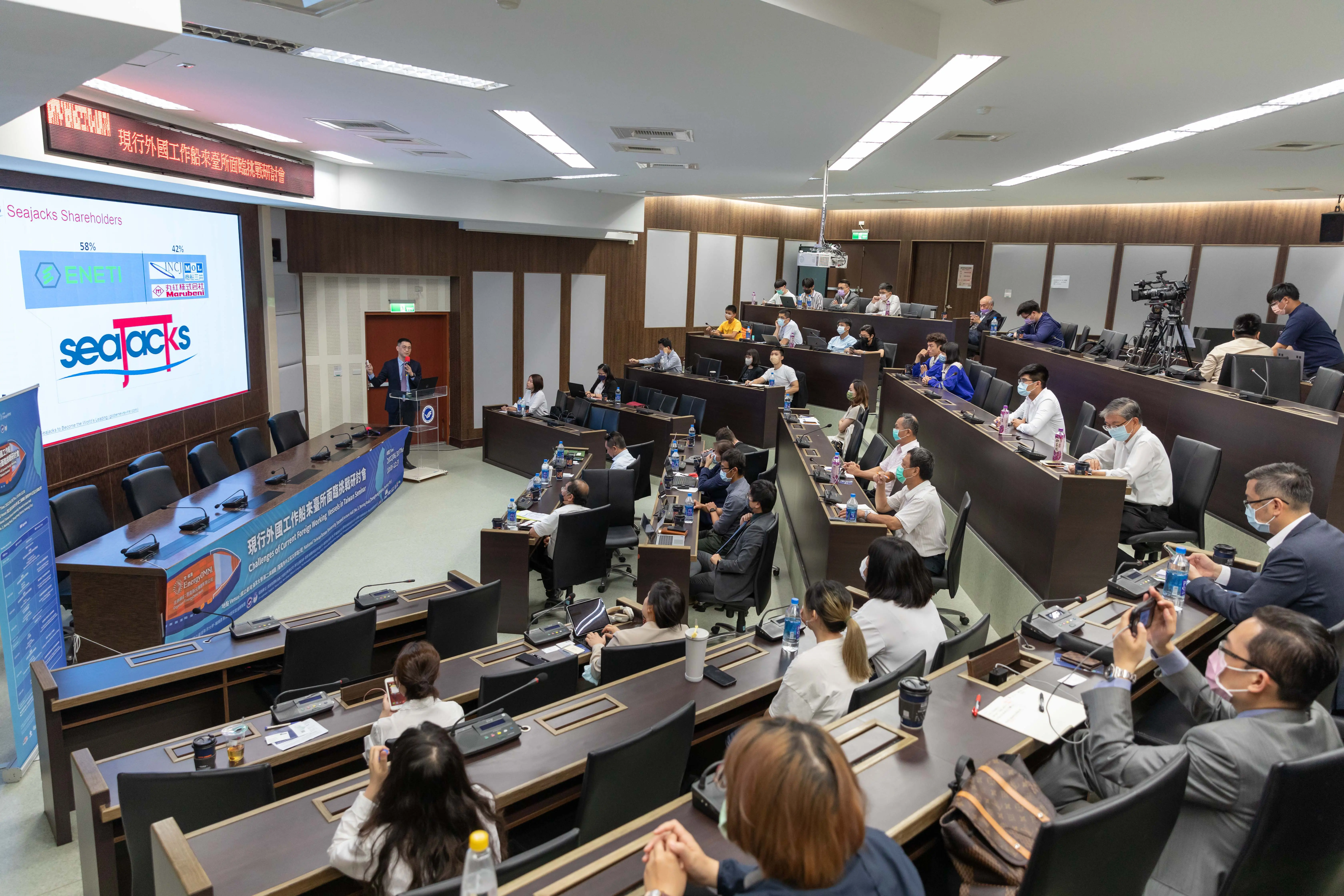〔Event Summary〕Challenges of Current Foreign Working Vessels in Taiwan

〔Event Summary〕Challenges of Current Foreign Working Vessels in Taiwan

By Xin-En Wu, Mei-Hsu Shih
Due to the global pandemic and offshore wind farm construction rapidly worldwide, a shortage of large-scale working vessels in the world occurred. Coupled with the development of floating OFW. the dispatch of offshore working vessels has affected the construction of wind farms. In view of the limited discussions on the implementation and planning of relevant marine engineering working vessels in Taiwan, NTOU, and EnergyOMNI 全.能源 organized the "Challenges of Current Foreign Working Vessels in Taiwan Seminar" on June 30, 2022. In the seminar, six lecturers from the industry and guests from various fields discussed the current problems faced by foreign working vessels in Taiwan in virtual and physical ways. This seminar was organized by TAEDT, Seajacks, MarcoPolo, Rem Ocean Offshore Company, RCG, OWC, IOG, Taiwan Ben Line Agencies, and BeautyLark Creative & Design.

Hank Tsai (Rem Ocean Offshore Company) indicated that the non-availability of the working vessel is difficult to obtain. The risk and cost of wind farm construction will increase if the working vessels can't be arranged timely. MarcoPolo is optimistic about Taiwan's renewable energy development and fully supports the government's localization plan. However, vessel owners who have reflagged their foreign-flagged working vessels to Taiwan Flag faced more restrictions on operating in Taiwan compared to foreign-flagged vessels. More support and assistance will need to be granted to these vessel owners who are committed to Taiwan in order to incentivize them to reflag their vessels to the Taiwan flag.

Jennifer Wu (Taiwan BenLine Agencies) pointed out the implementation problems without clear and unified functions and regulations regarding the current situation of foreign working vessels operating, including waste oil and food waste disposal, BSMI commodity inspection process, and aerial helicopter rescue.
MarcoPolo and Wu both suggest the need for providing a transparent information and communication platform. Yi-Jen (Ethan) Wang (IOG), Ching-Wen Huang (RCG), and Tony Lu (Seajacks) all pointed out that the lack of large-scale working vessels is happening worldwide, and the pandemic has exacerbated the shortage of vessel supply chains. To cope with the vigorous development of global wind farms requires flexibility and early planning. Luis González-Pinto Barrenetxea (OWC) indicated that the requirements for the construction of vessels in floating OWF differ from those of fixed types. However, it is still unknown whether the current vessels can meet the needs of floating wind farms to be developed after 3 to 5 years. The feedback and perspectives provided via the seminar could be viewed as a reference for formulating policies to achieve the goal of 5.7GW offshore wind capacity in 2026.

More related articles
